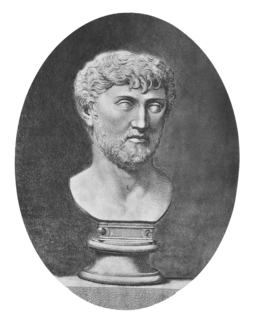 W
WHumanism is a philosophical stance that emphasizes the individual and social potential and agency of human beings. It considers human beings as the starting point for serious moral and philosophical inquiry.
 W
WThe following outline is provided as an overview of and topical guide to humanism:
 W
WThe quotation "all men are created equal" is part of the sentence in the U.S. Declaration of Independence, which Thomas Jefferson penned in 1776 during the beginning of the American Revolution that reads, "We hold these truths to be self-evident, that all men are created equal, that they are endowed by their Creator with certain unalienable Rights, that among these are Life, Liberty and the pursuit of Happiness". The phrase was present in Jefferson's original draft of the declaration. It was thereafter quoted and incorporated into speeches by a wide array of substantial figures in American political and social life in the United States. The final form of the phrase was stylized by Benjamin Franklin. It has been called an "immortal declaration", and "perhaps [the] single phrase" of the American Revolutionary period with the greatest "continuing importance."
 W
WThe Amsterdam Declaration 2002 is a statement of the fundamental principles of modern Humanism passed unanimously by the General Assembly of Humanists International (HI) at the 50th anniversary World Humanist Congress in 2002. According to HI, the declaration "is the official statement of World Humanism."
 W
WIn social theory and philosophy, antihumanism or anti-humanism is a theory that is critical of traditional humanism, traditional ideas about humanity and the human condition. Central to antihumanism is the view that philosophical anthropology and its concepts of "human nature", "man" or "humanity" should be rejected as historically relative, ideological or metaphysical.
 W
WThe Brights movement is a social movement whose members since 2003 refer to themselves as Brights and have a worldview of philosophical naturalism.
 W
WVan Wyck Brooks was an American literary critic, biographer, and historian.
 W
WCamerawork (1976–1985) was a British bi-monthly photography magazine promoting humanist, socialist and activist photography.
 W
WCelebrancy is a cultural profession founded in Australia on the 16th July 1973 by the Australian statesman and then commonwealth Attorney-General Lionel Murphy. The aim of the celebrancy program was to authorise persons to officiate at secular ceremonies of substance, meaning and dignity mainly for non-church people. Up until this point legal marriages were reserved only to clergy or officers of the Births, Deaths & Marriages registry office. These appointed persons, referred to in the Marriage Act of Australia as "authorised celebrants", create & conduct weddings, funerals, namings, house dedications, coming of age and other life ceremonies for those who do not wish to be married or have other ceremonies in a church or registry office.
 W
WChristian humanism regards humanist principles like universal human dignity, individual freedom, and the importance of happiness as essential and principal or even exclusive components of the teachings of Jesus. Proponents of the term trace the concept to the Renaissance or patristic period, linking their beliefs to the scholarly movement also called 'humanism'.
 W
WTranshumanist politics constitutes a group of political ideologies that generally express the belief in improving human individuals through science and technology.
 W
WThe Essence of Christianity is a book by Ludwig Feuerbach first published in 1841. It explains Feuerbach's philosophy and critique of religion.
 W
WThe Ethical movement, also referred to as the Ethical Culture movement, Ethical Humanism or simply Ethical Culture, is an ethical, educational, and religious movement that is usually traced back to Felix Adler (1851–1933). Individual chapter organizations are generically referred to as "Ethical Societies", though their names may include "Ethical Society", "Ethical Culture Society", "Society for Ethical Culture", "Ethical Humanist Society", or other variations on the theme of "Ethical".
 W
WExistential humanism is humanism that validates the human subject as struggling for self-knowledge and self-responsibility.
 W
WThe First Universal Races Congress met in 1911 for four days at the University of London as an early effort at anti-racism. Speakers from a number of countries discussed race relations and how to improve them. The congress, with 2,100 attendees, was organised by prominent humanists of that era; it was conceived of a result of comments in 1906 by Felix Adler and primarily executed by Gustav Spiller, a leader in the British Ethical Union. Philip Stanhope was president of the congress, and William Pember Reeves chaired its executive committee.
 W
WThe German new humanism, often called simply new humanism, was a movement that emerged in Germany around 1750. The term was coined by the historian Friedrich Paulsen in 1885. It was a continuation of the original humanism of the renaissance. Central to the movement was a rediscovery of Antiquity, and the movement was linked to a humanistic idea of knowledge, referred to as Bildung, and to the idea of humanity, the intellectual, physical, and moral formation of "a better human being." Some its major participants include Johann Matthias Gesner, Johann August Ernesti, Christian Gottlob Heyne, Friedrich August Wolf, Gotthold Ephraim Lessing, Johann Gottfried Herder, Johann Wolfgang von Goethe, Friedrich Schiller, Friedrich Hölderlin and Wilhelm von Humboldt.
 W
WThe Happy Human is an icon that has been adopted as an international symbol of secular humanism. Created by Dennis Barrington, the figure was the winning design in a competition arranged by Humanists UK in 1965. Various forms of it are now used across the world by humanist organisations of all sizes including Humanists UK, Humanists International and The American Humanist Association (AHA).
 W
WDonald Arthur Hatch was a Canadian agrologist, aviator, writer, and humanist lecturer, born in Guelph, Ontario, Canada. He was the author of numerous scholarly articles published in various Canadian journals. He was also the author of a thought-provoking work on philosophy and religion entitled The Road Not Travelled: How The Democracy, Science And Humanism Of The Greeks Was Suppressed by The Early Christian Church And How That Obstructed The Progress Of Humanity. The thoughts expressed therein are generally consonant with the credo of Humanist Canada, and other humanist associations around the world.
 W
WHuman scale is the set of physical qualities, and quantities of information, characterizing the human body, its motor, sensory, or mental capabilities, and human social institutions.
 W
WHumane Colombia, formerly known as the Progressive Movement, is a Colombian political movement and party founded in 2011 and led by politician Gustavo Petro. The Colombian Human Movement has emerged as a progressive node of the party.
 W
WHumanist Global Charity (HGC) is a 501c3 non-profit in California.
 W
WHumanist Manifesto is the title of three manifestos laying out a humanist worldview. They are the original Humanist Manifesto, the Humanist Manifesto II (1973), and Humanism and Its Aspirations. The Manifesto originally arose from religious humanism, though secular humanists also signed.
 W
WThe Humanist Movement is an international volunteer organisation following and spreading the ideas of Argentine writer Mario Rodríguez Cobos, commonly known by his nickname "Silo". The movement's ideology is known as New Humanism, Universal Humanism or simply Siloism.
 W
WA humanist celebrant or humanist officiant is a person who performs humanist celebrancy services, such as non-religious weddings, funerals, child namings, coming of age ceremonies and other rituals. Some humanist celebrants are accredited by humanist organisations, such as Humanists UK, Humanist Society Scotland (HSS), The Humanist Society (US), and the Humanist Association of Canada (HAC).
 W
WHumanistic capitalism is a concept that seeks to unite humanism, specifically the safety and health needs of people and the environment, with market forces and a market-based economy.
 W
WHumanistic historiography is a method in historiography based on the principles of humanism. The new style of (humanistic) historiography was established by the Florentine History of Bruni, and certain characteristics of the model still determined the treatment of political history in Machiavelli's Istorie Firoentine, as well as his delimitation of political subject matter at large.
 W
WHumanity & Society is a quarterly peer-reviewed academic journal published by Sage Publications, and is the official journal of the Association for Humanist Sociology (AHS). Established in 1977, the journal covers all aspects of sociology while focusing on issues of injustice, human suffering and social activism from a humanist point of view. The editor-in-chief is Diana Harvey.
 W
WHumanLight is a Humanist holiday celebrated annually on 23 December. HumanLight was first celebrated in 2001, and was created to provide a specifically Humanist celebration during the western world's holiday season. The New Jersey Humanist Network founded the holiday in 2001 to aid secular people in commemorating the December holiday season without encroaching on other adjacent holidays—both religious ones such as Christmas and secular ones such as Solstice. The inaugural event involved only the founding organization, but is now celebrated by many secular organizations and individuals across the United States and other countries. Various organizations have recognized the holiday, including the American Humanist Association in 2004. The HumanLight Committee maintains the official HumanLight webpage and engages with humanist organizations and the media about the holiday.
 W
WHumanism is an approach in study, philosophy, or practice that focuses on human values and concerns. Articles related to humanism include:
 W
WIntegral humanism was a set of concepts drafted by Deendayal Upadhyaya as a political program and adopted in 1965 as the official doctrine of the Jan Sangh and later BJP. Upadhyaya borrowed the Gandhian principles such as sarvodaya, swadeshi (domestic), and Gram Swaraj and these principles were appropriated selectively to give more importance to cultural-national values. These values were based on an individual's undisputed subservience to nation as a corporate entity. Richard Fox has characterised this as "ideological hijacking" and a "transplant" that was designed with a purpose to appropriate the authority that the Gandhian idioms had on Indian politics.
 W
WJacques Maritain was a French Catholic philosopher. Raised Protestant, he was agnostic before converting to Catholicism in 1906. An author of more than 60 books, he helped to revive Thomas Aquinas for modern times, and was influential in the development and drafting of the Universal Declaration of Human Rights. Pope Paul VI presented his "Message to Men of Thought and of Science" at the close of Vatican II to Maritain, his long-time friend and mentor. The same pope had seriously considered making him a lay cardinal, but Maritain rejected it. Maritain's interest and works spanned many aspects of philosophy, including aesthetics, political theory, philosophy of science, metaphysics, the nature of education, liturgy and ecclesiology.
 W
WLogosophy is an ethical-philosophical doctrine developed by the Argentine humanist and thinker Carlos Bernardo González Pecotche, which offers teachings of conceptual order and practices that lead oneself to self-cognition and self-improvement through a process of conscious evolution.
 W
WTitus Lucretius Carus was a Roman poet and philosopher. His only known work is the philosophical poem De rerum natura, a didactic work about the tenets and philosophy of Epicureanism, and which usually is translated into English as On the Nature of Things. Lucretius has been credited with originating the concept of the three-age system that was formalised in 1836 by C. J. Thomsen.
 W
WMarxist humanism is an international body of thought and political action rooted in an interpretation of the works of Karl Marx. It is an investigation into "what human nature consists of and what sort of society would be most conducive to human thriving" from a critical perspective rooted in Marxist philosophy. Marxist humanists argue that Marx himself was concerned with investigating similar questions.
 W
WThe Mencius is a collection of conversations, anecdotes, and series of genuine and imagined interviews by the Confucian philosopher, Mencius. The book is one of the Chinese Thirteen Classics, and explores Mencius' views on the topics of moral and political philosophy, often as a dialogue with the ideas presented by Confucianism. The interviews and conversations are depicted as being either between Mencius and the various rulers of the Warring States period, or with his students and other contemporaries. The book documents Mencius' travel across the states, and his philosophical conversations and debates with those he meets on his journey. A number of scholars suggest that the text was not written by Mencius himself, but rather by his disciples. The text is believed to have been written during the late 4th century BC.
 W
WPanhumanism is the concept of an affiliation with all mankind through some sort of legislative structure that allows all technological and economic development to be for the benefit of all people. The concept is sometimes seen as far-left, although there are also right-wing and centrist pan-human organisations, including the United Nations, some of which have even received significant opposition from the far-left over globalisation policies.
 W
WPersonism is an ethical philosophy of personhood as typified by the thought of the utilitarian philosopher Peter Singer. It amounts to a branch of secular humanism with an emphasis on certain rights-criteria. Personists believe that rights are conferred to the extent that a creature is a person. Michael Tooley provides the relevant definition of a person, saying it is a creature that is "capable of desiring to continue as a subject of experience and other mental states". A worldview like secular humanism is personism when the empathy and values are extended to the extent that the creature is a person.
 W
WPosthumanism or post-humanism is a term with at least seven definitions according to philosopher Francesca Ferrando:Antihumanism: any theory that is critical of traditional humanism and traditional ideas about humanity and the human condition. Cultural posthumanism: a branch of cultural theory critical of the foundational assumptions of humanism and its legacy that examines and questions the historical notions of "human" and "human nature", often challenging typical notions of human subjectivity and embodiment and strives to move beyond archaic concepts of "human nature" to develop ones which constantly adapt to contemporary technoscientific knowledge. Philosophical posthumanism: a philosophical direction which draws on cultural posthumanism, the philosophical strand examines the ethical implications of expanding the circle of moral concern and extending subjectivities beyond the human species. Posthuman condition: the deconstruction of the human condition by critical theorists. Posthuman transhumanism: a transhuman ideology and movement which seeks to develop and make available technologies that eliminate aging, enable immortality and greatly enhance human intellectual, physical, and psychological capacities, in order to achieve a "posthuman future". AI takeover: A variant of transhumanism in which humans will not be enhanced, but rather eventually replaced by artificial intelligences. Some philosophers, including Nick Land, promote the view that humans should embrace and accept their eventual demise. This is related to the view of "cosmism", which supports the building of strong artificial intelligence even if it may entail the end of humanity, as in their view it "would be a cosmic tragedy if humanity freezes evolution at the puny human level". Voluntary Human Extinction, which seeks a "posthuman future" that in this case is a future without humans.
 W
WRationalist humanism, or rational humanism or rationalistic humanism, is one of the strands of Age of Enlightenment. It had its roots in Renaissance humanism, as a response to Middle Age religious integralism and obscurantism. Rationalist humanism tradition includes Tocqueville and Montesquieu, and in the 19th century, Élie Halévy.
 W
WReason, Romanticism and Revolution is the last major work by Indian humanist philosopher and political activist M. N. Roy. Deemed by some to be his "magnum opus," the book was published in two volumes, with the final manuscript readied for the press in the spring of 1952.
 W
WReligious humanism is an integration of humanist ethical philosophy with congregational rites and community activity which center on human needs, interests, and abilities. Self-described religious humanists differ from secular humanists mainly in that they regard the humanist life stance as their religion and organise using a congregational model. Religious humanism is sometimes referred to as nontheistic religion.
 W
WThe Spanish Universalist School of the 18th century is mainly defined by Juan Andrés, Lorenzo Hervás and Antonio Eximeno as main Authors, but also by his close collaborators: the botanist Antonio José Cavanilles and the great Americanists Francisco Javier Clavijero, José Celestino Mutis, Juan Ignacio Molina and Joaquín Camaño, the bibliographer Ramón Diosdado Caballero, the Cosmographer-major of the Indies Juan Bautista Muñoz, the Philippine Juan de la Concepción and Miguel Casiri, a Lebanese-born Arabic-language expert.
 W
WTechno-progressivism or tech-progressivism is a stance of active support for the convergence of technological change and social change. Techno-progressives argue that technological developments can be profoundly empowering and emancipatory when they are regulated by legitimate democratic and accountable authorities to ensure that their costs, risks and benefits are all fairly shared by the actual stakeholders to those developments. One of the first mentions of techno-progressivism appeared within extropian jargon in 1999 as the removal of "all political, cultural, biological, and psychological limits to self-actualization and self-realization".
 W
WTheistic Humanism is the combination of humanistic ideals, particularly the idea that ideals and morals stem from society, with a belief in the supernatural and transcendental.
 W
WThe Transcendental Temptation: A Critique of Religion and the Paranormal is a 1986 book by the philosopher Paul Kurtz. The book was published by Prometheus Books, a company founded by Kurtz in 1969.
 W
WUbuntu is a Nguni Bantu term meaning "humanity". It is sometimes translated as "I am because we are", or "humanity towards others". In Xhosa, the latter term is used, but is often meant in a more philosophical sense to mean "the belief in a universal bond of sharing that connects all humanity".
 W
WUnitarian Universalism (UU) is a liberal religion characterized by a "free and responsible search for truth and meaning". Unitarian Universalists assert no creed, but instead are unified by their shared search for spiritual growth, guided by a dynamic, "living tradition". Currently, these traditions are summarized by the Six Sources and Seven Principles of Unitarian Universalism, documents recognized by all congregations who choose to be a part of the Unitarian Universalist Association. These documents are 'living', meaning always open for revisiting and reworking. Unitarian Universalist (U.U.) congregations include many atheists, agnostics, and theists within their membership—and there are U.U. churches, fellowships, congregations, and societies around the world. The roots of Unitarian Universalism lie in liberal Christianity, specifically unitarianism and universalism. Unitarian Universalists state that from these traditions comes a deep regard for intellectual freedom and inclusive love. Congregations and members seek inspiration and derive insight from all major world religions.
 W
WThe Universal Declaration of Human Rights (UDHR) is an international document adopted by the United Nations General Assembly that enshrines the rights and freedoms of all human beings. It was accepted by the General Assembly as Resolution 217 during its third session on 10 December 1948 at the Palais de Chaillot in Paris, France. Of the 58 members of the United Nations at the time, 48 voted in favour, none against, eight abstained, and two did not vote.
 W
WOn 29 November 2017, Victoria became the first Australian state to pass legislation allowing assisted suicide. The law gives anyone suffering a terminal illness, with less than six months to live, the right to end their life. The law had an 18-month implementation period, and came into effect on 19 June 2019.
 W
WWorld Humanist Day is a Humanist holiday celebrated annually around the world on the June solstice, which usually falls on June 21. According to Humanists International, the day is a way of spreading awareness of Humanism as a philosophical life stance and means to effect change in the world. It is also seen as a time for Humanists to gather socially and promote the positive values of Humanism.